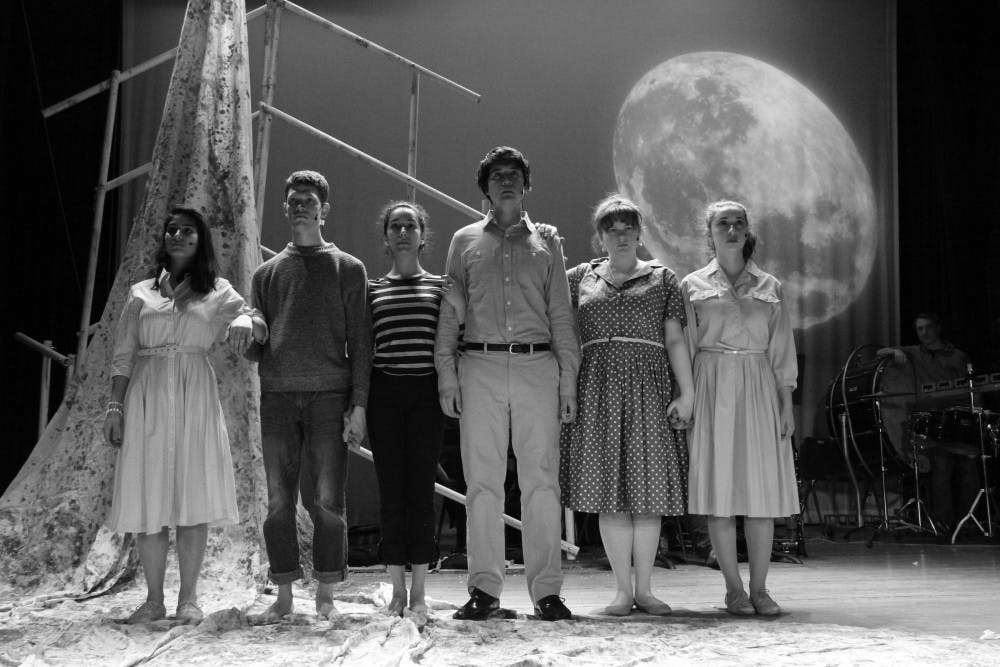Opera often connotes the stuffy Victorian era, the dismal Baroque era or the strict Italian aristocracy. Rarely is it a lens through which to explore meditation, sexual desire and anarchy. But in “Hydrogen Jukebox,” directed by Jonathan Adam ’16 and produced by Brown Opera Productions, this traditional genre becomes a caustic and countercultural mode of expression.
The show sets the torrential texts of Beat poet Allen Ginsberg, which were written from the 1950s through the 1980s, against Philip Glass’ minimalist musical score. In a nod to both artistic styles, a teardrop-shaped American flag hangs in the background as a simple yet powerful emblem of lost ideals.
“Hydrogen Jukebox” does not follow a rigid storyline so much as it flips through the channels of post-World War II suburbia. The actors shift into new roles with each scene, and their characters search for new identities with every changing moment. But this takes on an ironic tone, as the performers remain constant. And though these scenes are initially disjointed, providing only cursory glimpses of personal narratives, the loose threads ultimately weave a tapestry of the disillusionment and agitation sweeping through post-war American society.
The creative tension between Ginsberg and Glass is often playfully self-aware, such as in “Green Automobile,” during which taboo sexual desires burst out from the constraints of white picket fences. The characters begin in stiff heterosexual pairs, hollow smiles plastered on their faces as they sing sexually explicit lyrics to a bright, almost hymnal tune, before rearranging to face their true objects of desire in a passionate and erotic display.
As the ensemble struggles to break free from the homogenizing yokes of religion, government or oppressive social norms, they begin to homogenize these structures in return. In “From Iron Horse Pt. 2,” characters clamor in an ostensibly religious fervor, but the scene takes on an anti-religious tone as they slowly fall into a militaristic line together. They march rigidly back and forth to the rhythm of a mantra-like chant: “Who — is — the enemy?”
This social malaise reaches a fever pitch as William Fesperman’s ’15 recites Ginsberg’s chilling anti-war poem, “Wichita Vortex Sutra,” which synthesizes the pastoral imagery of Kansas with reports of violence. The work appeals to a plurality of gods to transcend this horror through some elusive “universal language.”
As Fesperman speaks, Anjali Carroll ’17 dances around him in a slow, purposeful glide. Both performers build intensity over the course of the poem: Carroll’s graceful pirouettes pick up speed until she bucks and leaps through the air in explosive tour jetes; Fesperman’s steady simmer finally boils over in a thunderous sermon. His arms spread-eagle as he jubilantly eschews all association with a faceless political machine, declaring the war has ended.
“Hydrogen Jukebox” will run tonight through Sunday at 7:30 p.m. in Alumnae Hall.

ADVERTISEMENT




